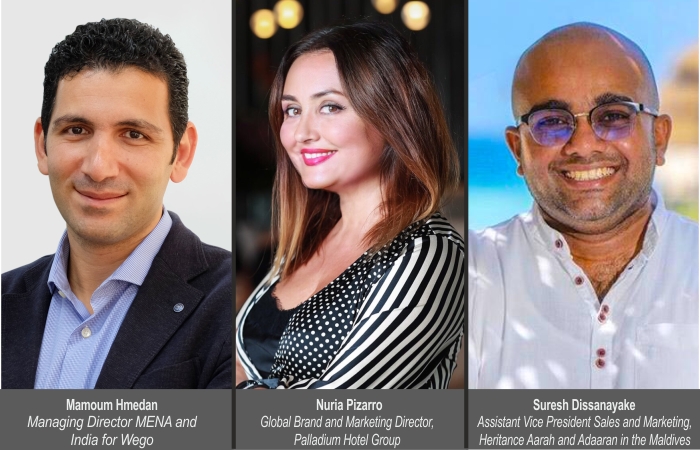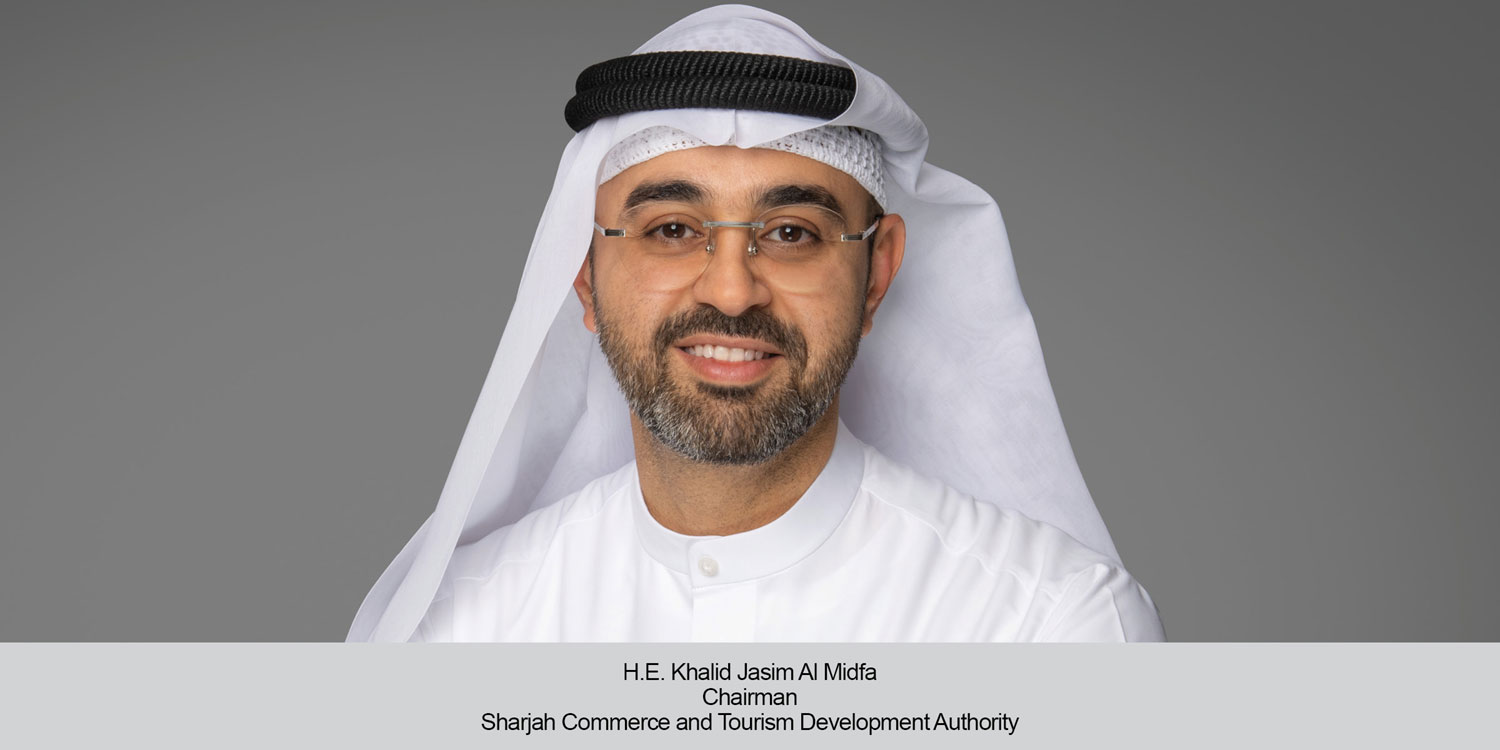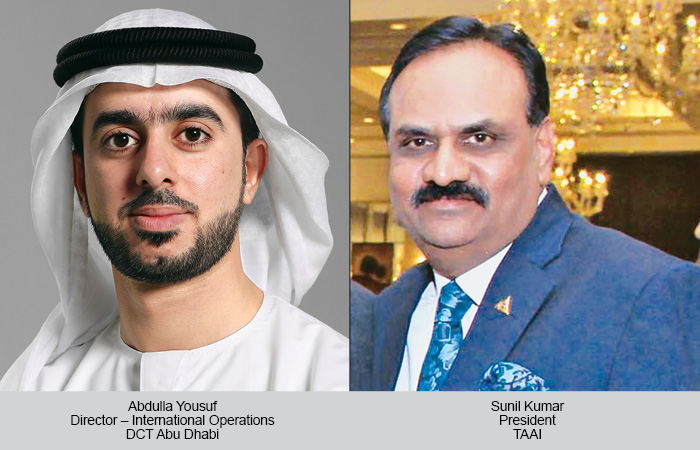Middle East is a resilient market with an appetite to travel and explore different experiences. As staycations rise in the Middle East, Maldives has already welcomed travellers from the region after the lockdown. Europe is focusing on the domestic market and ensuring that they first build the confidence of their travellers.
Shehara Rizly
Summer in the Middle East is a time when everyone gets to travel on their long awaited vacations with their family and friends. As school holidays spread out to over three months, the locals and expats living in the Middle East would always take their breaks out of the country. However, this year brought in a new kind of tourism to the fore. It was the norm during Eid holidays for people to take staycations and travel around the neighbouring cities.
Domestic tourism looking up
Starting off the third edition of the TRAVTALK Digital Conclave, Mamoum Hmedan, Managing Director MENA and India for Wego, shared, “It has been a very challenging year for us. Travel and tourism in this part of the world has seen double-digit growth year-on-year, unfortunately this year the entire industry suffered. However, we are seeing a good comeback especially in the countries which opened up earlier than the rest of the world. I’m talking about the UAE, Dubai specifically and to a certain extent, the Kingdom of Saudi Arabia with their domestic flights. Demand is back, bookings are back. In some areas in the UAE, for staycations the occupancy was 100 per cent in hotels. Ras Al Khaimah reported over the Eid break a few weeks ago that they had 100 per cent occupancy rate, and Dubai is seeing over 60 per cent occupancy in hotels. Saudi which opened its domestic flights in June slowly but steadily with 70 per cent of the capacity available, saw 60 per cent recovery in terms of bookings, which is promising. There is lot of talk about the Saudi international market opening and flights resuming by September, it is expected that they will see 20-30 per cent recovery. Egypt is a very interesting market to look at right now, it was one of the first countries to open their borders and welcome people, it also waived off quarantine which helped a lot.”
“Staycations and domestic travel have grown to a great extent with 20 per cent plus year-on-year and 50 per cent plus inbound travel recovery year-on-year. From what we are seeing it’s 10-15 per cent of the capacity and booking ratio from last year. We can close the year overall in the region with a ratio at 50-60 per cent of 2019 numbers – talking about bookings, capacity and total – which is good in a year like this,” he opined.
Nuria Pizarro, Global Brand and Marketing Director, Palladium Hotel Group talked about their efforts behind the scene in the European and Caribbean properties she handles. She shared, “In Europe, in the current situation, we have to relook at the way to travel and the way to approach the market. We are dealing with the unknown and don’t how the situation will be in the future. As of now, the focus is on the domestic market. Economies of countries like the UK, France, Italy, Germany have to grow and that’s why we are focused on preparing all their hotels to welcome guests and provide them a worry-free vacation in the different destinations in Europe.
One of the most important things we communicated to our customers while they made their booking was to reassure them that they would be able to cancel the booking anytime. Another thing was to prepare our properties in six destinations, most of them in Spain, Italy and the Caribbean, Mexico and Jamaica. As of now, we have insurance care along with 24/7 medical care to cater to all our guests free of charge.”
Suresh Dissanayake, Assistant Vice President Sales and Marketing, Heritance Aarah and Adaaran in the Maldives, said, “We are a nation heavily dependent on tourism, directly or indirectly 80 per cent of the country depends on tourism. When the lockdown was announced in March, it gave us an opportunity to stop for a while, rethink and re-strategise. From the month of April, Maldives Tourism as well as resorts in the Maldives have been very actively marketing the destination digitally to the consumers. We have also been conducting lots of webinars for the trade so that Maldives will be on top of their mind. This has helped us to be one of the first countries in South Asia to open the destination. We opened the borders on July 15, and so far we have catered to around 8,000 guests. We started with a campaign called ‘The sun will shine again’ which worked really well for the destination. Around 60 resorts are in operation now, and we are hoping that another 40 resorts will open next month. As a destination, the Maldives is slowly picking up.”
Booking trends and patterns
Hmedan stated, “In general there are some noticeable changes, we are not yet seeing families and groups travelling from the region, what we see is solos, young travellers. The usual trend that you see from GCC, i.e. big groups, big families travelling together, is not happening this year. There are lots of repatriation flights to India, Egypt etc., and we are seeing an increase in one-way tickets. In general, we are not seeing long trips of 14 to 20 days being planned from here, there are only short trips of two or three days and staycations. In terms of average spend on the hotels, at some point of time prices dropped dramatically so the average booking value went from US$500 per night to US$300 but it recovered quite quickly especially in the regional and domestic hotels. As for flights, prices are pretty much at the same level but for some routes they are lower.”
Talking about the need for sharing information with travellers, he said, “We should play a key role when it comes to information. Today the information being given to travellers is vague, so we are looking at developing a platform for disseminating important information. Until that happens it will be a big constraint towards restoring leisure and luxury tourism especially for families.”
“Business travel is down especially by 30 per cent plus travel from the region especially intra GCC travel is down but we expect this to recover quickly once intra travel happens. Travel corridors are working, and recovery will be fast. We expect it to happen within the next two months, we are going to see UAE – Saudi, UAE – Bahrain, Bahrain – Saudi, opening up again,” he added.
Dissanayake shared, “We are hoping to recover 40-50 per cent by the end of this year. We are getting good bookings especially for next summer. When it comes to luxury travel booking patterns, we have noticed that most of the clients are looking for a long stay. Earlier, clients from the Middle East were looking at weekend getaways with a four-hour flight but now we see a trend, they try to book for a longer stay like four to six nights as they face difficulties while travelling to a destination due to the different protocols at the airports in different countries. Some markets are very resilient, even from the Middle East market we had lots of tourists coming in especially during the Islamic new year and the Eid break. We are hopeful and I’m sure that we will bounce back soon.”
Pizarro commented, “Domestic tourism has picked up and there is ample flexibility when it comes to bookings. I hope that by the end of this year all international borders will open. GCC, India and US are important markets for us. One of the things is consumer perception on how to market for the new normal situation. We prepare the hotels in terms of health and safety. Our objective is to convince customers to come to Europe. And for this to happen, we need to offer personalised services and experiences. As of now, we are trying to give the message that we have everything to cater to their personalised needs.”
Repositioning luxury
Dissanayake opined, “The luxury traveller is looking to slow down and is seeking simplicity, less distraction and purity. Luxury travellers are coming to the Maldives especially with their families and are looking at digital detoxification for their kids who have become addicted to digital experiences due to the pandemic. Most of the guests travelling to the Maldives are opting for long stay holidays, they are looking at places with lots of activities for kids, so resorts are focusing on this.
At the time of opening the destination the Maldives Tourism gave us clear guidelines on how to run the hotels. For the luxury traveller we all make sure it’s a safe holiday. The Maldives is one of the few destinations where the guest doesn’t need to go to the medical centre, a doctor comes to the villa and collects the sample and gives the report, that’s the kind of convenience Maldives gives for the luxury traveller – it’s a hassle-free holiday.”
“When it comes to spending patterns, it depends on how we convince luxury travellers to spend for their experiences, gone are the days when people spent a lot of money on luxury villas. Today the travellers are looking for experiences, for instance, a water villa with a slide is a dream holiday in the Maldives for a client. When we opened Heritance Aarah we built a 100 per cent over water public pool. We are looking at enhancing the customer experience, if you take the product Heritance Aarah, as a premier, all-inclusive platform, we give variety to a client. We are giving the luxury traveller more convenience, we are creating experiences for them to spend money. We are looking at going back to basics where the luxury traveller is looking for such experiences, especially a rustic experience. We believe the travellers have changed, their patterns have changed. Nowadays a lot of hotels in the Maldives are using Artificial Intelligence to collect information to identify customers’ needs and wants prior to their arrival so that they are prepared when the traveller arrives,” he added.
“Luxury travellers want instagrammable destinations more than anything else. First, the destinations that will be able to offer more local experiences will always win. The second aspect is pricing, travellers are going to always look for unique yet affordable experiences. Even five-star resorts in the region and across the world are looking at offering authentic experiences,” concluded Hmedan.
Updates
In some areas in the UAE, for staycations the occupancy was 100% in hotels. Ras Al Khaimah reported over the Eid break a few weeks ago that they had 100% occupancy rate, and Dubai is seeing over 60 per cent occupancy in hotels. — Mamoum Hmedan
Economies of countries like the UK, France, Italy, Germany have to grow and that’s why we are focused on preparing all their hotels to welcome guests and provide them a worry-free vacation in the different destinations in Europe. — Nuria Pizarro
We opened the borders on July 15, and so far we have catered to around 8,000 guests. Around 60 resorts are in operation now, and we are hoping that another 40 resorts will open next month. As a destination, the Maldives is slowly picking up. — Suresh Dissanayake
Updates
Luxury travellers want instagrammable destinations more than anything else. The destinations that will be able to offer more local experiences will always win. Even five-star resorts in the region and across the world are looking at offering authentic experiences.” — Mamoum Hmedan
Our objective is to convince customers to come to Europe. And for this to happen, we need to offer personalised experiences. As of now, we are trying to give the message that we have everything to cater to their personalised needs.” — Nuria Pizarro
Earlier, clients from the Middle East were looking at weekend getaways with a four-hour flight but now we see a trend, they try to book for a longer stay like four to six nights as they face difficulties while travelling to a destination.” — Suresh Dissanayake
 TravTalk Middle East Online Magazine
TravTalk Middle East Online Magazine





